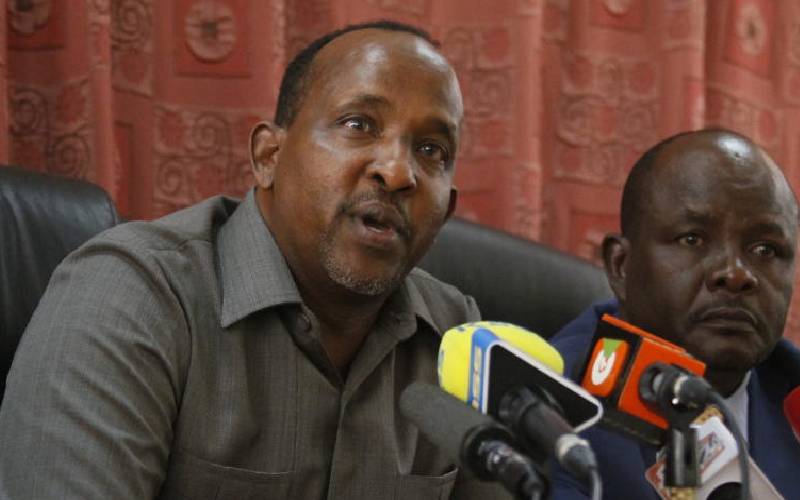×
The Standard e-Paper
Fearless, Trusted News

National Assembly Majority Leader Aden Duale. [Photo, Standard]
The motion seeking to have two third Gender Bill implemented flopped on Wednesday due to lack of requisite quorum. Only 174 members were present in the House.This is the fourth time the bill has been differed in Parliament since the promulgation of the new constitution in 2010.